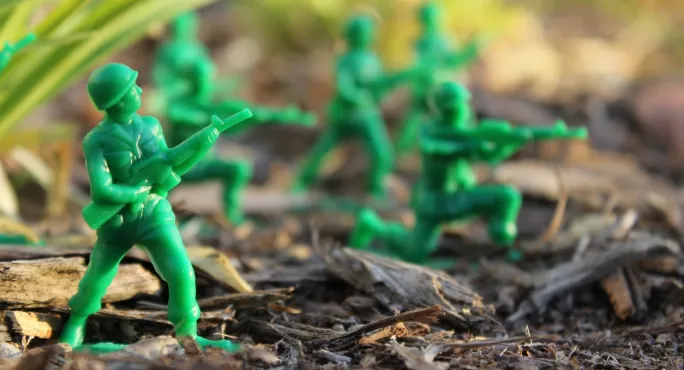It was supposed to be an impossible task. The most eminent politicians of the time could not successfully prevent the outbreak of the First World War, so what chance did my Year 9 history class have in a single 50-minute period?
Yet, armed with information about the tricky position each country was in, they set about working on the problem in groups.
And that’s where it all started to go wrong.
With each group representing a different country, the idea had been for them to deepen their understanding of how hard it was to prevent war by trying to negotiate a settlement without anybody sacrificing their own key interests. I had seen the idea online and thought I’d try it.
I should have thought harder.
‘Social loafing’ in group work
My first mistake was making the groups too large. The more people in a group, it seems the more they will talk and the less they will get done. That is not just the judgement of a cynical teacher (though it may be that too), but the findings of research into a phenomenon in group work known as “social loafing”.
A lot of studies have now clearly shown this effect. Whether pulling in a tug of war, yelling with others at the top of their lungs, or, indeed, working on a task in a classroom, people put in less effort once part of a group than they do when working on their own. And the bigger the group, the less effort each puts in. So groups of three would have been far better than the groups of five that I used.
My second mistake was giving the groups material to read and then allowing them to discuss it right away. How can you discuss what you haven’t yet read? It’s a fair question. If only I’d have asked it beforehand, rather than years later, as I am now.
I suppose I was going along with what I had heard was good practice when getting pupils to brainstorm. The more discussion there is, the more ideas are generated, and the better the final result. That’s what I thought.
‘Let pupils work alone initially’
The more I’ve read about the subject since, though, the more I’ve read about how wrong I was. It turns out that individuals working alone not only come up with more ideas than they do when working in groups, but they come up with better ideas too. The solution, according to a paper by psychology professors Paul Paulus and Vincent Brown, is to alternate between solitary and group brainstorming. So I should have let pupils work alone initially, and perhaps share written ideas with other individuals to develop ideas further, before allowing them to be discussed in groups.
Finally, my third mistake was encouraging my pupils to work cooperatively as a group.
That may sound strange. After all, isn’t that what teachers are supposed to do? To encourage students to listen to each other and not criticise their ideas? As you’ll have guessed by now, apparently not.
As Matthew Syed has discussed in Black Box Thinking: the surprising truth about success, a masterpiece about learning from mistakes and criticism, brainstorming is simply not as effective when facilitated in this way. Instead, studies have shown that groups generate more ideas and indeed better ideas when members are actively encouraged to debate and criticise. Far from hampering the creative process, this provides feedback that is vital to improving existing ideas and to sparking new ones.
So after all these mistakes, what happened?
The representatives of Britain didn’t understand what was going on. The representatives of France could be found discussing the previous night’s football. And the representatives of Austria-Hungary decided they were willing to forgive Serbia for its part in the killing of Archduke Franz Ferdinand because they “hadn’t even heard of him”.
At least the disaster that was the First World War had been averted, which is more than could be said for my disaster of a lesson.
Jon Tyler is deputy head (academic) at Dauntsey’s School in Wiltshire


